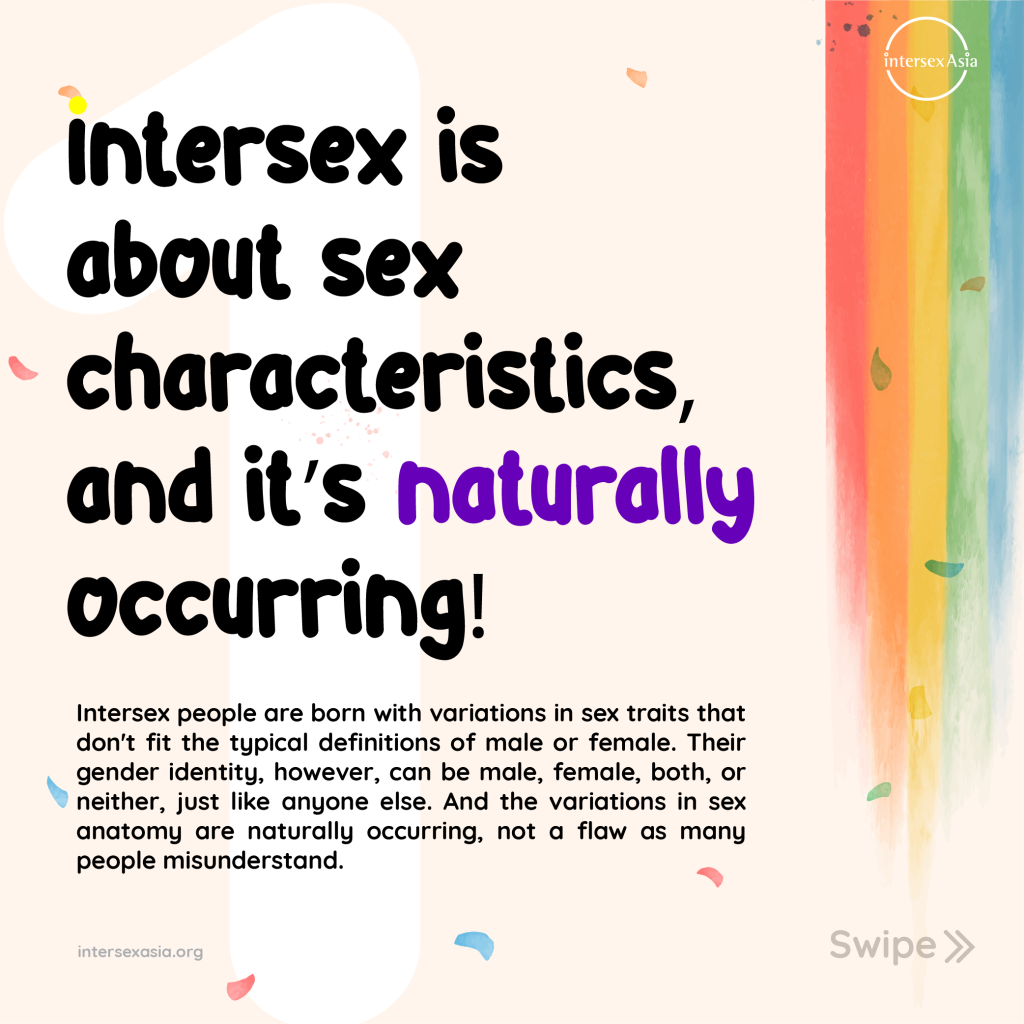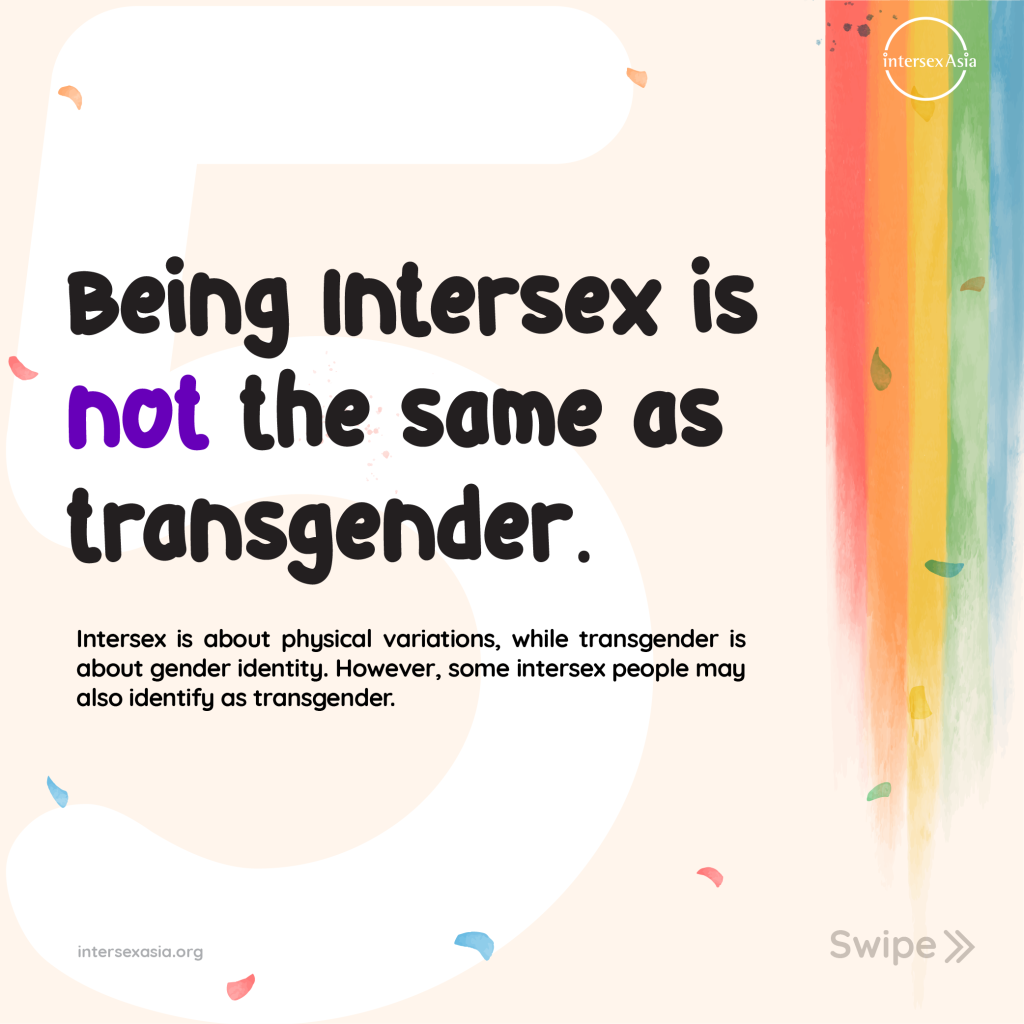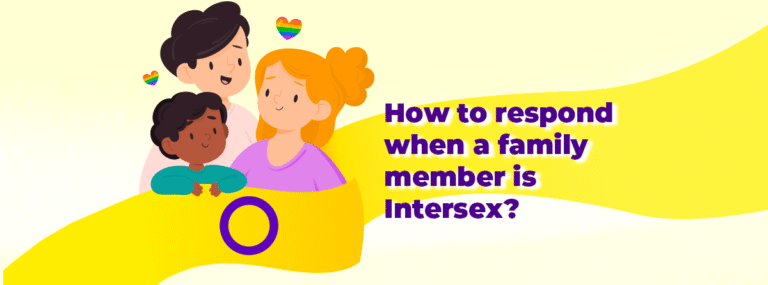How much do you know about intersex? We’re living in a world where diversity is widely celebrated, yet not everyone know or fully understand about intersex, who we are, and what challenges we’re facing daily. During this IDAHOBIT 2024, Intersex Asia is proud to start a brand new series of materials on our website namely “Intersex 101”. This series will provide you with basic and updated knowledge of intersexuality, and it’s fully available for download and use as educational materials.
This first article will start with 10 facts about intersexuality that many people often misunderstand.
Intersex people are just as capable.
Having a variation in sex traits doesn’t make someone any less whole or deserving of respect.
Intersex is about sex characteristics, and it’s naturally occurring
Intersex people are born with variations in sex traits that don’t fit the typical definitions of male or female. Their gender identity, however, can be male, female, both, or neither, just like anyone else. And the variations in sex anatomy are naturally occurring, not a flaw as many people misunderstand.
It’s surprisingly common.
Estimates range from 0.05% to 1.7% of people being born with intersex traits globally. That’s about as common as having red hair.
There are many variations of intersex.
It’s an umbrella term for a wide range of conditions. Some people might have internal sex organs that don’t match their external genitalia, while others might have chromosomes that aren’t XX or XY.
Unnecessary surgeries are a concern.
Being intersex is not a medical problem. Many intersex infants or children are forced to go through irreversible, risky, and medically unnecessary surgeries to try to make their bodies conform to sex stereotypes. These children are too young to consent to the intervention. These procedures can have serious negative health consequences.
Intersex is not the same as transgender.
Intersex is about physical variations, while transgender is about gender identity. However, some intersex people may also identify as transgender.
Being intersex is unrelated to sexual orientation.
Being intersex doesn’t affect who you’re attracted to. Intersex people can be straight, gay, lesbian, bisexual, asexual, or anything else on the sexuality spectrum.
Intersex people often face many legal challenges.
Most current legal systems only recognize people as male or female. It’s challenging for intersex people to officially obtain their accurate ID and other documentation, leading to difficulty in accessing health services, employment, and so on.
Intersex people around the world are fighting for their human rights.
Many intersex activists advocate for bodily autonomy and an end to unnecessary medical interventions on intersex babies, as well as legal reform to better support intersex individuals in living their daily lives.
Intersex awareness is growing.
More and more people are learning about intersex variations, which helps to challenge rigid ideas about sex and gender.
















